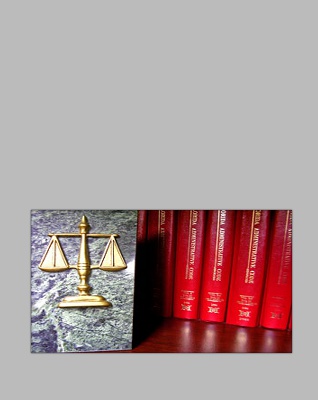











Law Offices of
J. MANUEL ACEVEDO, P.A.
J. MANUEL ACEVEDO, P.A.
Have Questions Regarding
the Florida Divorce Laws?
the Florida Divorce Laws?
Call us!
407-323-4080

Call us!
407-323-4080
Florida Divorce Laws:
The Florida Divorce Statutes
The Florida Divorce Statutes
Lawyer Advertising. Whether you are looking for a Central Florida Family Lawyer, Divorce Attorney, or Child Custody Attorney, the hiring of a lawyer is an important
decision that should not be based solely upon advertisements. Before you decide, ask us to send you free written information about our qualifications and experience.
decision that should not be based solely upon advertisements. Before you decide, ask us to send you free written information about our qualifications and experience.
Florida Divorce Laws:
The Florida Divorce Statutes
The Florida Divorce Statutes
* Divorce & Child Custody
* Visitation / Time Sharing
* Visitation / Time Sharing
There are three major components that make up the Florida Divorce Laws. Those three
components are: (1) the Florida Divorce Statutes; (2) the Florida Family Law Rules of
Procedure; and (3) the Florida Divorce Case Law.
The first component of the Florida Divorce Laws are the Florida Divorce Statutes. As you
may know, the Florida Statutes are what some people refer to as the letter of the law in
Florida. They are essentially the written statements of law that are passed by the Florida
Legislature and signed into law by the Governor.
Florida Divorce Laws:
The Florida Divorce Statutes
We can provide you with
confidential family law advice
and legal help regarding:
The Florida Divorce Statutes
We can provide you with
confidential family law advice
and legal help regarding:
The Florida Divorce Laws
The Law Offices of J. Manuel Acevedo, P.A., are located at 116 North Park Avenue in Sanford, Florida, 32771.
Attorney Acevedo is a lawyer admitted to practice law in Florida, has clients from Florida, the United States, and
other countries, and primarily serves Seminole County, Volusia County, Orange County, and Lake County, and the
following cities: Sanford, Longwood, Lake Mary, Heathrow, Altamonte Springs, Casselberry, Oviedo, Goldenrod,
Fern Park, Forest City, Midway, Geneva, Chuluota, Winter Springs, Wekiva Springs, Deland, Deltona,
Orange City, Debary, Lake Helen, Daytona, Deleon Springs, Orlando, Apopka, Maitland, Lockhart,
Azalea Park, Winter Park, Mount Dora, Tavares, and Eustis.
Divorce & Family Law | Florida Divorce Laws | The Florida Divorce Statutes
Attorney Acevedo is a lawyer admitted to practice law in Florida, has clients from Florida, the United States, and
other countries, and primarily serves Seminole County, Volusia County, Orange County, and Lake County, and the
following cities: Sanford, Longwood, Lake Mary, Heathrow, Altamonte Springs, Casselberry, Oviedo, Goldenrod,
Fern Park, Forest City, Midway, Geneva, Chuluota, Winter Springs, Wekiva Springs, Deland, Deltona,
Orange City, Debary, Lake Helen, Daytona, Deleon Springs, Orlando, Apopka, Maitland, Lockhart,
Azalea Park, Winter Park, Mount Dora, Tavares, and Eustis.
Divorce & Family Law | Florida Divorce Laws | The Florida Divorce Statutes
To visit our main website go to:
www.attorney-jmanuelacevedo.com
Copyright © 2011-2014 Law Offices of J. Manuel Acevedo, P.A.
El Abogado Habla Español
* Child Support
* Alimony / Spousal Support
* Alimony / Spousal Support
Bridge the Gap Alimony
Rehabilitative Alimony
Durational Alimony
Permanent Alimony
Rehabilitative Alimony
Durational Alimony
Permanent Alimony
The Florida Divorce Statutes
In Florida, statutes are arranged by Title, and those Titles are arranged by Chapter. The Chapters
are further divided into Parts and the Parts are divided into Sections. As we go through this
overview, keep in mind that the Florida Statutes refer to "divorce" as "dissolution of marriage."
The following illustrates how the Florida Divorce Statutes are categorized. The Florida Divorce
Laws are civil in nature, not criminal, so we look to Title VI (Civil Practice and Procedure). And
within Title VI, the Florida Divorce Statutes are included in Chapter 61 (Dissolution of Marriage;
Support; Time-Sharing). Chapter 61, in turn, is divided into Part I (General Provisions) and Part
II (Uniform Child Custody Jurisdiction and Enforcement Act).
And, the Parts are further divided into individual Sections such as the Florida child custody laws
in section 61.13 and the Florida child support laws in section 61.30.
In order to maximize your chances of a fair and
equitable result in your divorce case you should
be familiar with the components of the Florida
Divorce Laws that apply to your Florida divorce
based on your individual situation.
In the next segment of the Florida Divorce Laws you will find a brief description of the second component, the Family Law Rules of Procedure.
In the next segment of the Florida Divorce Laws you will find a brief description of the second component, the Family Law Rules of Procedure.
You should be familiar with each of the above components in order to maximize your chances
of a fair and equitable result in your divorce case. You may also want to consider this three
part overview of the Florida Divorce Laws in determining whether you should schedule a
consultation with an experienced Florida divorce lawyer for your divorce in Florida.
Have Questions Regarding
the Florida Divorce Laws?
the Florida Divorce Laws?
* Child Protective Services
* Termination of Parental Rights
* Termination of Parental Rights
* Mediation & Negotiations
* Division of Property
* Uncontested Divorce
* Division of Property
* Uncontested Divorce
* Do It Yourself Divorce
* Paternity Actions
* Temporary Custody Changes
* Paternity Actions
* Temporary Custody Changes
* Child Custody Modifications
* Child Support Modifications
* Child Support Modifications
Military Personnel
Grandparents / Relatives
Grandparents / Relatives
* Alimony Modifications
* Juvenile Dependency
* Juvenile Dependency